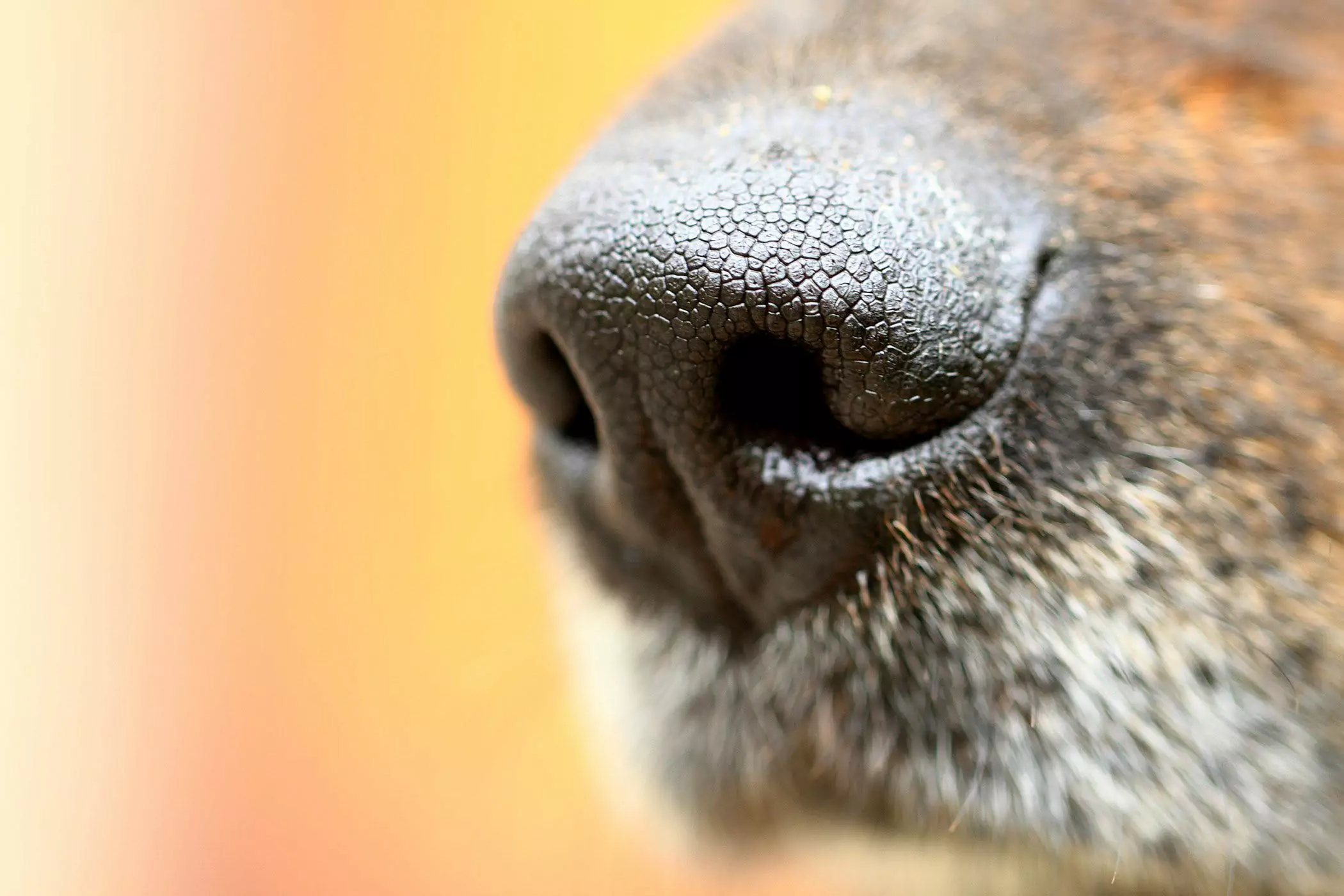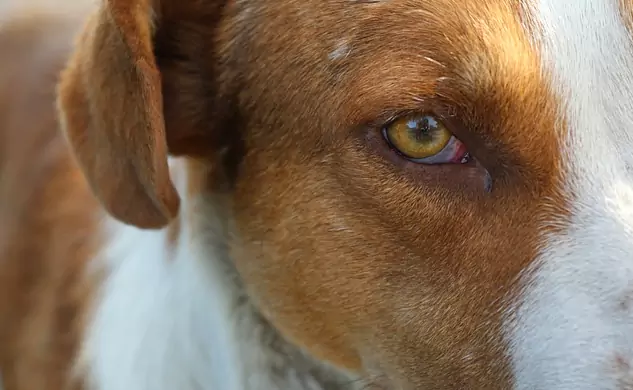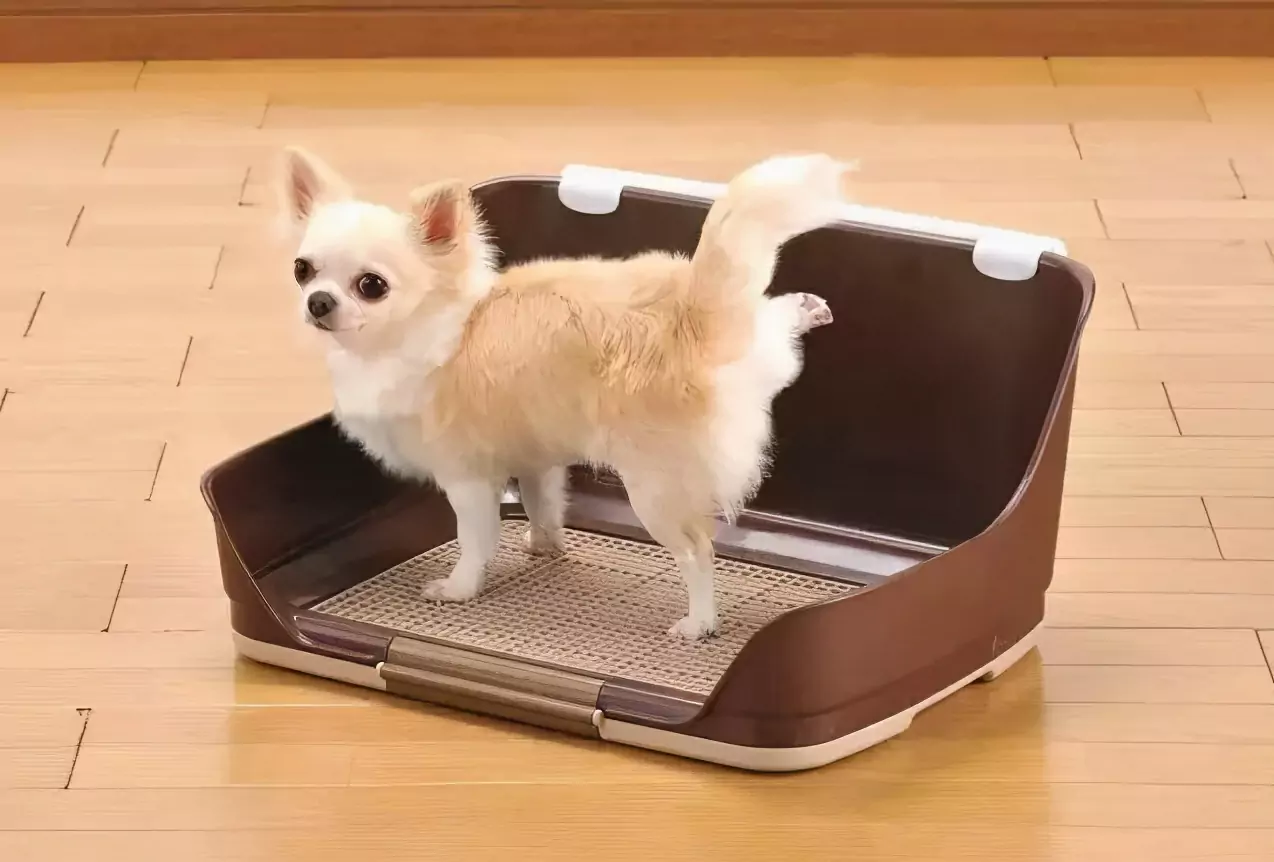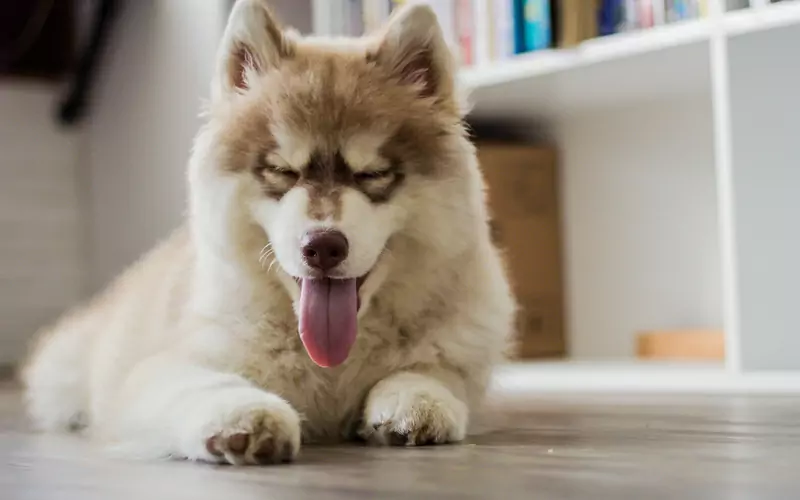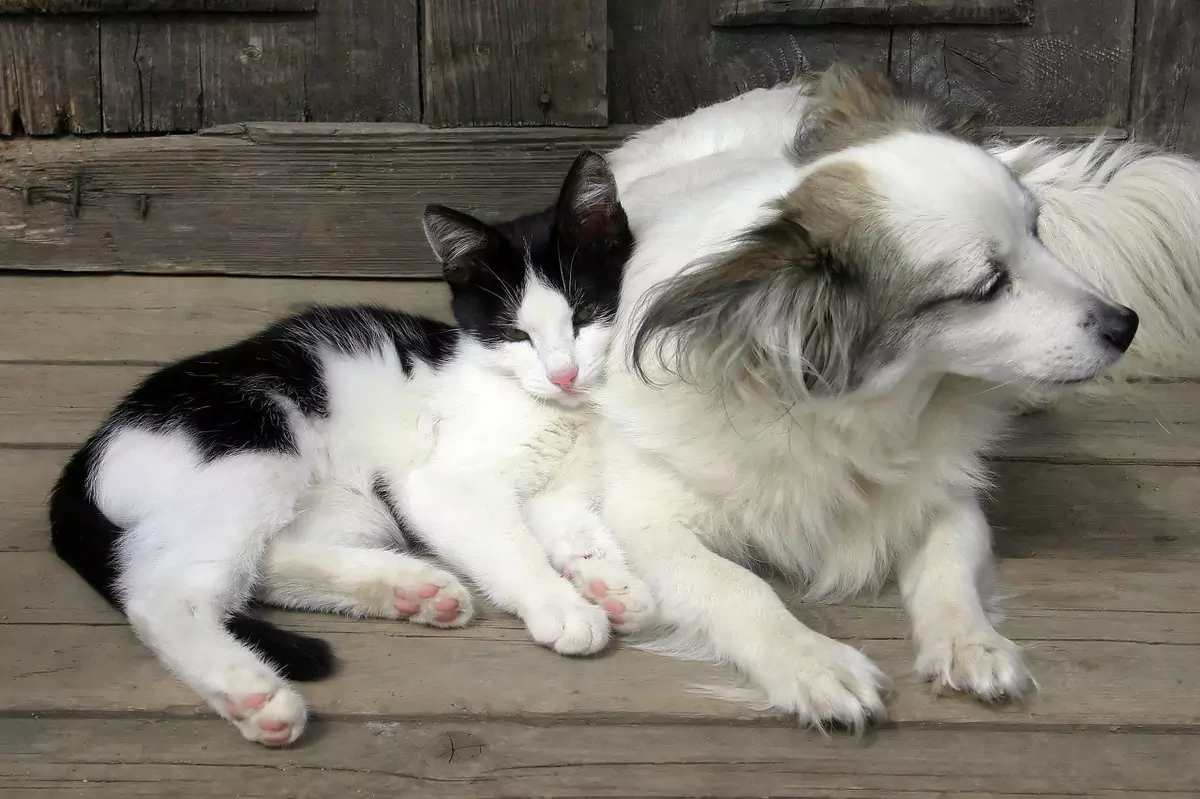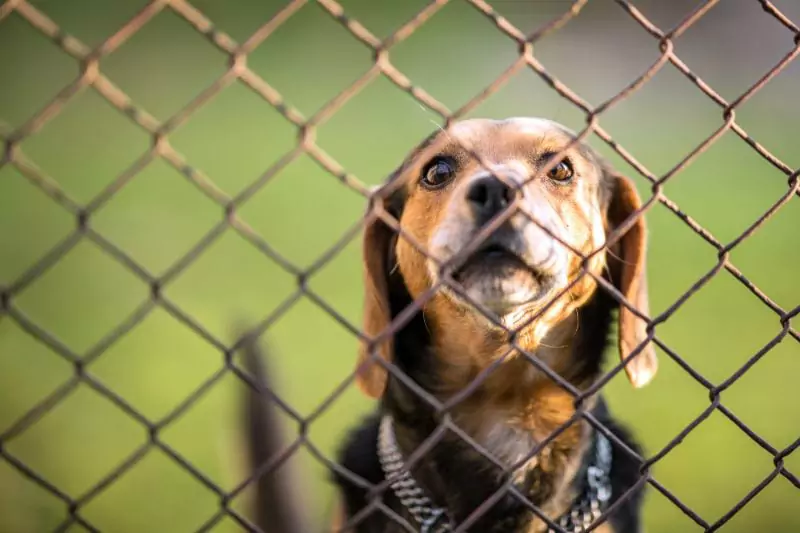Why does my cat have diarrhea? What is cat diarrhea?
2022-07-08
For cat owners, the daily litter box cleaning is always accompanied by unspeakable smells. However, for the arrogant and stoic cat, the pooper scooper can tell if the cat is healthy by the poo or urine clumps while cleaning the litter box, such as diarrhea.
Cat diarrhea is very common, for example, our big cat has had diarrhea when changing food, and kittens have had diarrhea when receiving new food. However, it is not only food that causes cat diarrhea, but also some other disease effects. On the surface, cat diarrhea is no different from diarrhea when we eat something bad, but in fact, the matter of cat diarrhea is not that simple.
With all kinds of knowledge about pet ownership, pooper scoopers also know that cat diarrhea should not be taken seriously. So today we will learn together, what causes cat diarrhea? What should you do if you find that your cat has diarrhea? How to prevent cat diarrhea in your pet's life?
I. What is cat diarrhea?
When food enters the stomach from the cat's mouth, after digestion it is carried into the small intestine with water, and then the small intestine transports the poo to the large intestine. The large intestine further absorbs the water in the stool, and it is normal for the stool to be discharged and formed after the water is reduced. If there is a problem in any part of the process, it will disrupt the normal formation process. For example, the passage time of the stool through the large intestine is too short, and the large intestine does not have enough time to absorb the water; abnormal peristalsis of the large intestine; excessive mucus secretion from the large intestine, etc. The normal stool of a cat is shaped, shiny, yellow, or brown when fresh, slightly soft, slightly stained when clean, and does not crack easily. Diarrhea, in its simplest form, is the result of various causes of excessive water content in the stool and poorly formed stools.
According to the characteristics of diarrhea, we generally divide it into these categories.
1, acute diarrhea and chronic diarrhea.
Acute diarrhea means that diarrhea appears very suddenly and is characterized by increased frequency of defecation and multiple trips to the litter box; the stools are thin, soft, and unformed with high water content. It is often associated with acute enteritis, viral infection, poisoning, etc.
Chronic diarrhea has a long and recurrent course and is characterized by normal stools for some time, followed by soft stools, and the cycle lasts for several days. There are many causes of chronic diarrhea in cats, such as parasites, bacterial infections, secondary to other diseases, etc.
2. Colonic diarrhea and small intestine diarrhea.
The number of bowel movements is significantly higher than that of small intestine diarrhea, and the frequency is usually greater than 5 times.
Small intestinal diarrhea is like a large amount of melting soft sorbet, sometimes with a foul smell of watery stool, generally about 2-3 times, the cat may appear to lose appetite, waste, vomit, and other manifestations.
In addition, it can be divided into.
1, abnormal movement diarrhea. For example, the change in weather leads to cold or increased peristaltic movement of the large intestine due to stress, and the water that should have been absorbed is not completely absorbed resulting in diarrhea.
2, osmotic diarrhea, the intestines of the unabsorbed solutes increase, the water content of the stool further increases, and the large intestine can not be completely absorbed resulting in diarrhea.
3, secretory diarrhea, an abnormal increase in secretions of the gastrointestinal tract breaks the balance of the gastrointestinal tract, and the normal formation of poo is hindered causing diarrhea, such as the effect of bacteria.
4, Exudative diarrhea, damage to the gastrointestinal mucosa, ulceration or inflammation due to foreign body damage or other causes, causing indigestion, electrolyte leakage, constipation or diarrhea, etc.
If you find slightly soft or unformed watery, melted ice-cream-like stools when cleaning the litter box, then there is no doubt that your cat has diarrhea. At this point, you need to observe and record these points.
Take a picture of your cat's feces, which will make it easier to visualize the nature of the color of the poop, etc.
Observe whether there is blood or mucus similar to snot in the stool, and observe whether there are parasites in the stool.
Record the frequency of the cat's bowel movements when it has diarrhea
Whether the cat howls or has a painful expression when defecating
What is the appetite and mental state, etc.?
There are many reasons for cat diarrhea, including but not limited to these aspectsDiet
1. Change of food
Diarrhea caused by a change in food is very common. When a cat is used to a portion of cat food, if all of it is replaced directly, it means that the cat's gut and the flora in the intestine have to adapt to the new proteins and fats, and carbohydrates in a very short period. Different cat foods have different ratios of protein and fat, so if you want to replace them, it is recommended to add a small amount of the new food to completely replace the old one and pay attention to the gradual process. In addition, before buying a large package of cat food, it is recommended to buy a small package for the cat to try before deciding to replace it.
2. Irregular meals, over-eating or under-eating.
In this area of feeding cats, Orange Goge most recommended has always been a regular quantitative feeding, so that you can avoid food exposure to the air for too long to deteriorate, but also cats can eat on time good habits. Indulging your cat to eat buffet cat is easy to consume too many calories leading to obesity while eating too much at once gastrointestinal indigestion is also easy to causes diarrhea and constipation. In addition, irregular meals are very easy to gastrointestinal diseases, which can also easily lead to cat diarrhea. However, many pooper scoopers go out to work during the day and let their cats eat buffets as a last resort. If you have the conditions, you can purchase an automatic feeder, while other pooper scoopers can try to arrange the cat's diet for the day, do not let the cat eat too much, and do not let it starve.
3. Unclean food or utensils
Whether it is a cat or a person, eating unclean and spoiled food is likely to cause diarrhea. If you pour too much cat food into the cat food bowl at once and the cat cannot finish it in a short time, the cat food exposed to the air for a long time will easily deteriorate. In addition, if you buy a large package of cat food, not only is it not stored in separate packages, but also not sealed, the cat food will easily deteriorate in the long run, leading to cat diarrhea and illness. In addition to dry food, canned food also needs to pay attention to spoilage problems, after opening the lid is not eaten and can be wrapped in plastic wrap and put into the refrigerator for storage, but it is best to eat within 12 hours.
4銆丮is-eating
Cats have a lot of food that cannot be eaten, such as coffee, fried food, various seasonings, cleaning agents, and so on. If you mistakenly eat these things, light diarrhea, and heavy may be life-threatening. In addition, cooked chicken bones, fish bones, etc. are also likely to be stuck in the cat's intestines and cause diarrhea. When feeding cats such cooked food, pay attention to removing the bones.
5. Allergy or food intolerance.
Some cats have an intolerance to a certain component of food that can lead to diarrhea, such as certain meats, lactose, etc. If you know what your cat is allergic to, take care to avoid these ingredients when buying canned cat food and other products.
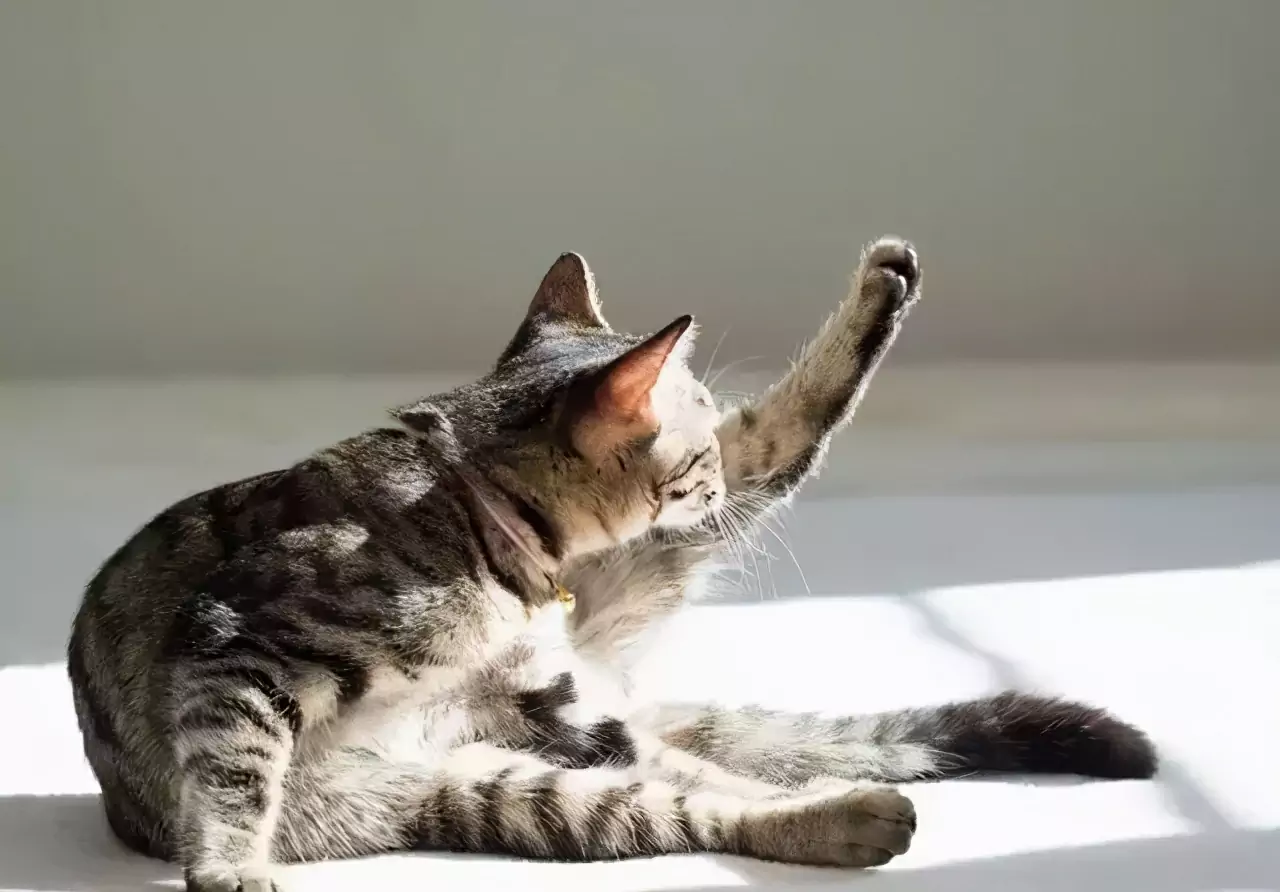
III. Diseases
1. Feline panleukopenia (feline distemper)
Feline distemper is an infectious disease with a very high mortality rate for cats. Clinical manifestations include recurrent fever, vomiting, diarrhea, depression, etc. Kittens that have not been vaccinated are extremely susceptible, and adult cats that have been vaccinated can sometimes be infected. Cats infected with this disease will also have a lot of viruses in their excrement. Families with multiple cats must isolate and treat the affected cats from normal cats and also pay close attention to other normal cats for abnormal conditions.
2. Feline leukemia.
Feline leukemia is an infectious disease of malignancy caused by the feline leukemia virus and feline sarcoma virus. Among all infectious vectors in cats, this virus is one of the most contagious and can be contracted by even one contact with the affected cat. The virus infects the lymph and spreads to cause an intestinal infection, which may lead to inflammatory diarrhea when the epithelial mucosa of the intestine is damaged. This disease is difficult to diagnose and requires blood tests.
3. Infectious peritonitis in cats.
Infectious peritonitis in cats is caused by the mutation of the feline coronavirus. The unmutated coronavirus is infectious and easily transmitted through saliva, common litter box, and cat food bowl. Initial symptoms are not obvious, but intestinal problems appear first, such as repeated diarrhea, vomiting, and accompanied by fever.
4. Enteritis.
Inflammatory enteritis in cats is accompanied by vomiting and diarrhea, mainly due to inflammatory cells permeating the mucosa of the digestive tract. Acute gastroenteritis has a significant increase in water intake, while a short period will appear vomiting and diarrhea, and other uncomfortable symptoms. Chronic gastroenteritis, although the symptoms are lighter than acute gastroenteritis, prolonged diarrhea and discomfort will cause the cat gradually lose weight and dull coat.
5. Intestinal tumor.
When a cat has an intestinal tumor, such as lymphoma, it will also show diarrhea, constipation, or blood in the stool. Generally speaking, intestinal tumors in cats are more likely to occur in the large intestine than in the small intestine, and the diagnosis needs to be confirmed by abdominal ultrasound, X-ray, cytological examination, etc. Intestinal tumors are usually malignant and the prognosis is not optimistic.
6. Exocrine pancreatic insufficiency (EPI)
When the pancreas cannot provide sufficient digestive enzymes, bicarbonate, and other digestive and absorption substances, there will be poor digestion and absorption of nutrients, which will lead to indigestion symptoms such as diarrhea, excessive bowel movements, and weight loss.
7, hyperthyroidism.
Hyperthyroidism is caused by excessive secretion of thyroid hormones, resulting in increased excitability and hyper-metabolism of the nervous, circulatory and digestive systems of the body. Hyperthyroidism mostly occurs in older cats, manifesting itself as thinness with more food, more water, and more urine; some cats may experience vomiting, diarrhea, and other symptoms; disorganized hair and loss of luster, etc.
Four, other causes
1. Catching a cold.
Seasonal changes, prolonged stay in the air-conditioned room, or not thoroughly dried after bathing may cause the cat to catch a cold and cause diarrhea.
2. Stress reaction.
A sudden change of environment or going out can easily lead to stress, especially for some timid cats. This can lead to stress or emotional diarrhea in cats, which can generally recover on their own after it has adapted to their environment. If your cat's diarrhea is always bad after a change of environment, then it is recommended that you take your cat to the doctor.
3. Parasites.
If your cat has not been dewormed for a long time, you can deworm your cat first to see how it responds. In addition, adult cats need to be dewormed every three months or so. Cats that have the habit of going out can also shorten the deworming interval appropriately and pay attention to the dosage.
4. Medication
The use of antibiotics is likely to cause diarrhea in cats, which is accompanied by a lack of appetite and vomiting. Some analgesics and anti-cancer agents may also cause diarrhea in cats. For diarrhea caused by drugs, in principle, the administration needs to be terminated, but for special reasons, the pooper scooper needs to communicate with the doctor and find alternatives.
The causes of cat diarrhea shared above may not be complete, but among these culprits that cause cat diarrhea, disease causes we must rely on the help of a doctor to improve or solve. If you begin to suspect a disease cause after you have ruled out possible causes of cat diarrhea, it is recommended that you take your cat and the records you have made in advance to the hospital for examination and treatment.
V. What can you do about cat diarrhea? How to prevent diarrhea problems in cats?
Fast without water or give a small amount of food and observe any improvement in the cat's condition.
Take regular antidiarrheal medication. Some pooper scoopers are willing to try to see for themselves if they can make some changes to help their cats improve their diarrhea when they first notice it. If you want to try giving your cat some antidiarrheal medication, then you can try montmorillonite dispersion or white clay. In addition, it is safest to contact your trusted doctor before deciding.
Worming. If your cat has not been dewormed for a long time and you find bright red blood in the cat's excrement, then you can try to deworm your cat first.
Take some probiotics. Cats are prone to diarrhea when adjusting to new foods, especially kittens, and you can try feeding your cat some probiotics to help regulate the gut. Note that a healthy cat does not need to take probiotics for a long time. For cats with diarrhea, although probiotics have a role in improving intestinal flora, they should not be used as the primary treatment for diarrhea. If your cat has severe diarrhea, seeing a doctor is the safest way to go.
In conclusion, general gastrointestinal diarrhea can be fasted and observed for 1-2 days depending on the cat's condition. If the cat is significantly better, you can see the situation again. If the cat has severe diarrhea and does not get better, it is recommended that the owner take the cat to the hospital for examination and treatment.
So, how can we prevent cat diarrhea? There are 6 suggestions.
1, do not suddenly replace the new brand of cat food. It is recommended that the new food be increased one by one until the old food is completely replaced and that the cat's eating as well as excretion be kept in mind. Different age of the cat is best to choose the appropriate age of the cat food, such as young cats consuming adult cat food or large grain cat food is also likely to tummy, when the cat's gastrointestinal conditions are not fully developed, replace the special food for young cats; older cats have reduced digestive capacity, it is also recommended to replace the special food.
2. Maintain good feeding habits. Insufficient activity of indoor cats is easy to gain weight, and if cats are allowed to eat a "buffet" for a long time, it is easy to cause obesity and various digestive problems. If you can feed your cat regularly and quantitatively, it is best, but if you can't, try not to overfeed or starve your cat, and calculate how much food to give each day according to your cat's weight. In addition, do not feed your cat too much-canned cat food, ham sausage, Wonder Bread, etc., and do not give your cat food for human consumption. These foods are high in oil/salt and are likely to cause indigestion in cats, thus causing vomiting and diarrhea.
3. Pay attention to the preservation of cat food and the cleaning of cat bowls, and do not give cats spoiled food. Buy a large package of cat food is recommended to buy some divided bags to save, each time you open a small bag after sealing, eat about a week is not easy to deteriorate. If you use a food storage bucket, then pay attention to sealing the food after each pickup and clean it every once in a while. The cat's water bowl food bowl is best cleaned once a day, or at least once every 2-3 days if you are too busy.
4, home seasonings and various cleaning agents disinfectants, and other items are properly stored, do not let the cat accidentally eat such toxic substances.
5銆丆ats need to pay attention to warmth during the change of season or when they stay indoors for a long time.
6銆丷egular deworming and medical examination.
Was this article helpful to you?
Other links in this article
português (Brasil):
Por que meu gato tem diarréia? O que é diarréia de gato?
中文简体:
为什么我的猫腹泻?什么是猫腹泻?
中文繁体:
為什么我的貓腹瀉?什么是貓腹瀉?







